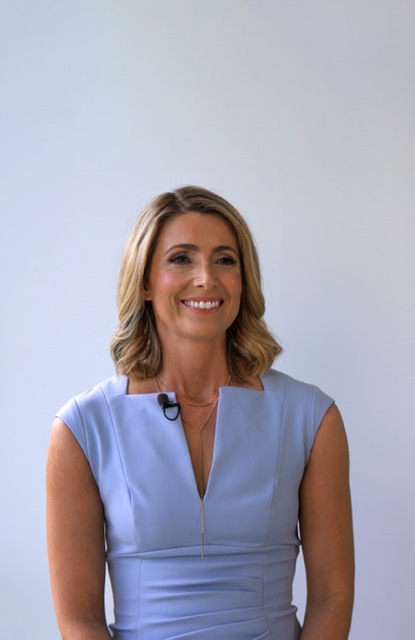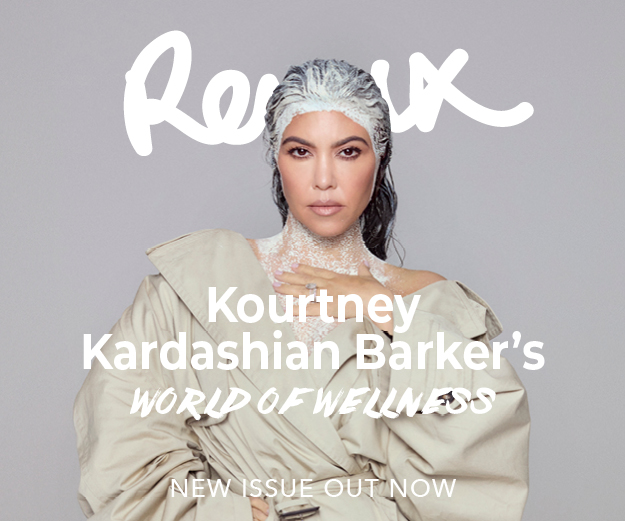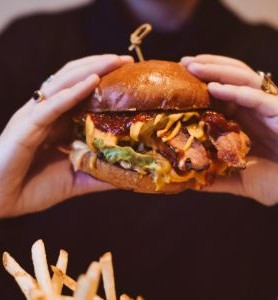Get to know your body through your DNA
The future of personalised wellness is here. Remix editor Amber caught up with Dr Libby Lindsay, the local expert using people’s gene data to better their health and happiness through a genetics reporting service called Ingeneous. With a BA in Psychology, MsC in Pharmacology, BsC in Dental Surgery and a certification in Nutrigenomics, she’s a highly educated and motivated woman who’s about to change the world for the better.

What sort of service does Ingeneous offer kiwis?
Ingeneous uses your DNA to give you truly personalised food, exercise, environment, supplement, and lifestyle advice to be your best self.
How does the process work?
Once you order online, or purchase through pharmacy (Unichem and Life Pharmacy), you’ll receive a kit and instructions on how to do the simple cheek swab. You then pop your kit into the supplied courier bag to get it back to us. We then run it through the lab and you'll then get your results in around two weeks. Your report and recommendations will then be available online to get insights into your wellness by topic. Our first topic to focus on is all about inflammation. You will learn what your strengths and weaknesses are, plus we will reveal your five gene-specific action points to turn those weaknesses into strengths.
How many people have you already helped with your services?
Ingeneous has serviced over 500 users since users currently, after launching the online platform in March this year. But I have worked with over 1000 clients in my career in private practice and trained 100's of practitioners in the science of gene analysis in Australia and NZ.
What provoked you personally to develop Ingeneous? You have struggled with your own health conditions, right?
I had chronic migraines, depression and infertility until I changed my genetic health. By learning exactly what foods, exercise, supplements, and medicines I needed, I got better, and I got pregnant. So I wake up every day, look at my daughters, and share my passion for personalised health and genetics.
When did you have the lightbulb moment about collating the information from people's DNA to form personalised wellness plans?
We imagine a world where everyone who wants it, can have access to genetic testing to empower their own health journey and be their best self. This can start as early as your first day of life. We envision a world where every health question can be answered with your own personally genetic driven answer. We want to be the ones holding your hand during your entire life health journey. We want to help you get your baby to sleep, avoid eczema in the toddler years, to lose that new parent weight, to balance hormones for your teenager or in menopause, to look and feel your best long into your 90's. We want to be your health companion for life.
For me personally, the light bulb moment was "What if by doing this testing and fixing your own body, you won't just make your own life better, but you spare your future kids from the pain and suffering of migraines that you have lived through." Epigenetics can change health outcomes in a positive way for up to 300 generations! So we are not just improving health outcomes today, but for the future of humanity. How cool is that!
How does the DNA tell you what each individual requires? How does it work?
There are over 50 million peer-reviewed published scientific articles that form the basis for what gene versions like which lifestyle factors. Health advice isn't always as expected. Being keto, gluten-free, dairy-free, vegan, drinking green tea, intermittent fasting and exercising everyday can be really BAD for your health! Some people need to eat more carbs, more dairy, more fat, eat often, drink a small glass of wine and exercise less to have great health. Everybody is different.
No two people are "healthy" in exactly the same way, so we build your health plan based on your unique DNA. We tell you what health habits are worth your time, money and effort. Chronic inflammation has been recognised as being responsible for a majority of health problems, so your first step towards great health focuses on reducing inflammation. There are at least 200 scientifically proven ways to do this (food, exercise, supplements, etc). To begin with, we focus on your top five. Which five are right for you? Different genes like different things and science gives us powerful insights to answer your health question in a way that is completely unique to you.
In my results it's recommended I don't drink coffee and should get lots of sunshine (vit d), you didn't know the fact that I can't stand coffee and am obsessed with sunshine, which was so interesting, but does that mean my body was already trying to tell me what I should do/avoid?
Yes! I've been accused of being a mind reader once or twice, because your genetic predispositions are just so robust. Your body is always trying to talk to you, so great job listening! But it can be a bit tricky trying to interpret what your body is saying, so that's where Ingeneous comes in and takes out the guesswork.
Just how much do these customised wellness plans vary from person to person? How different is our DNA from one another?
No two people have the same fingerprint, and no two people have exactly the same DNA. People can also have 3 different versions of each gene. We can test for up to 225 gene SNP’s and look at on average 50 genes per report.[An SNP is a single nucleotide polymorphism – a variation at a single position within a DNA sequence.] We take a very holistic look at your gene data to make recommendations that are right for you. For example; you might have one gene that says you can metabolise coffee really well, but you would be remiss if you didn’t look at the other 26 gene SNP’s which say that coffee has a negative impact on your body. Ingeneous has been created to offer a polygenic gene analysis - which means we aim to give you the most complete answers.
Tell us a little bit about your background in medicine/science?
My diverse background allows me to implement creative problem solving in a holistic way. BA Psychology, an MsC Pharmacology and a BsC Dental Surgery & certified in nutrigenomics. Most of my published research has been in the area of stress hormones and brain recovery.
What has been the most surprising find in your studies of genetics and health?
Maybe it's not so much surprising as much as validating. Twenty years ago, I recognised the value of the inflammatory processes as a potential causation for illness, and it's been amazing to see this materialize into the robust leading theory out of Harvard University "the unifying theory of disease" that looks at the majority of disease starting with inflammation. Mounting evidence suggests that even Alzheimer's disease is considered inflammatory in origin. So, by improving inflammation coordination there is great potential to also improve brain function.
Is utilising people's genetics the future to a happier population?
I truly believe so. The most effective way I have found to lower inflammation, boost energy, improve sleep and wake up with optimism is through the level of personalisation that only gene testing provides.





